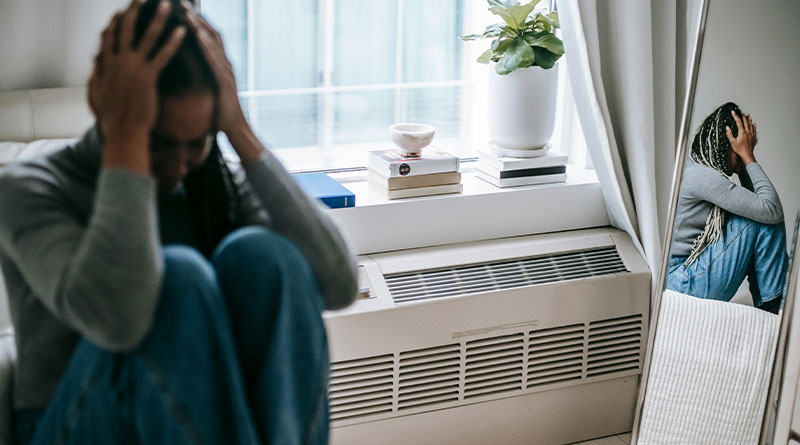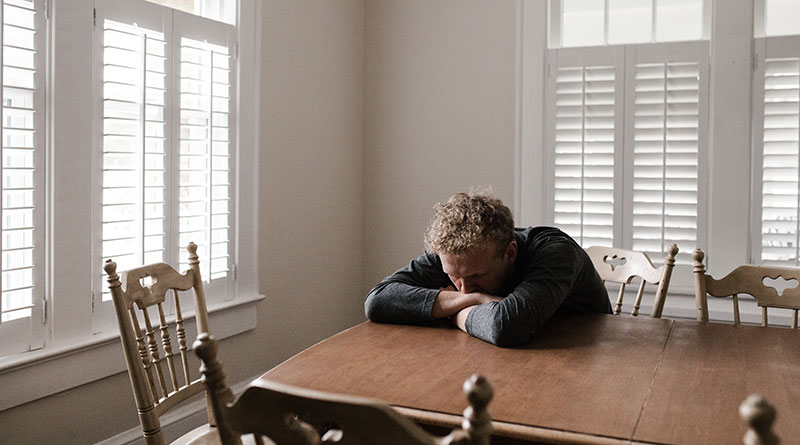Common mental diseases like depression and GAD (Generalized Anxiety Disorder) can affect a person’s health and quality of life. They are different, yet they commonly occur together, complicating the indications. GAD sufferers overthink several aspects of their lives. However, depressed people feel gloomy, helpless, and uninterested in things. These diseases overlap, and people commonly experience symptoms of both.
Several things can worsen GAD or create depression. Fear and worry in GAD can stress people out, draining their mental resources and increasing their risk of depression. GAD’s negative thinking and ruminating can make people feel hopeless and inadequate, worsening their depression.
Anxiety symptoms like muscle tension and insomnia can make you tired and harder to do activities, worsening depression. Since treating both GAD and depression at once improves outcomes and health, appropriate diagnosis and therapy require knowledge of their relationship.
Understanding Generalized Anxiety Disorder
GAD creates excessive worry and tension over daily activities. GAD patients struggle to control their anxieties, causing stress and making life difficult. GAD symptoms include anxiety, depression, insomnia, irritability, muscle tension, and concentration issues.
Generalized Anxiety Disorder sufferers may have difficulty with jobs, relationships, and health. Because they are always anxious, GAD sufferers have problems making decisions, getting along with others, and getting things done. Chronic anxiety can cause heart, digestive, and migraines.
Depression
Major depressive disorder makes patients feel hopeless, gloomy, and unable to enjoy their favourite activities. Suicidal thoughts, hunger, weight changes, insomnia, tiredness, and guilt might result from depression.
Many aspects of life are difficult for depressed people. This illness makes maintaining relationships, working, and enjoying things hard. Many people suffer from depression, impacting their quality of life and functioning.
With GAD, Might Depression Occur?
GAD can worsen or induce depression, even though they are separate illnesses. Several factors could cause this relationship:
- Pre-Depression Anxiety
People with Generalized Anxiety Disorder are constantly anxious and disturbed. This can reduce their resilience and problem-solving. This can lead to depression over time. Chronic stress and negative thought patterns in GAD can cause depression symptoms such as fatigue, hopelessness, and uselessness.
GAD sufferers may struggle to manage their emotions and stress, which increases their risk of depression. Being nervous all the time can make a person exhausted and unmotivated, making it hard to do things or stay positive.
- Common biological and genetic components
GAD and depression share brain regions, especially the serotonin and norepinephrine systems. Stress responses and mood depend on these neurotransmitter systems. Research shows that GAD and depression can render these systems unstable, worsening symptoms. Genetics can also increase the risk of many illnesses, suggesting a biological link. Changes in serotonin and norepinephrine transporter or receptor genes may increase anxiety and depression risk.
Changes in the HPA axis, which governs stress, also cause anxiety and depression. Understanding these shared biological and genetic components helps you focus on neurochemical balance and symptom-reduction therapies.
- The implications for daily existence
GAD and depression can impair daily functioning and quality of life. GAD sufferers are always anxious and worried, making it hard to focus, make decisions, and interact with others. However, depression drains energy and motivation, making it hard to accomplish pleasant things.
Depression and GAD can worsen these issues, making it harder to work, study, date, and take care of yourself. People may struggle to complete work, keep up with friends and family, or satisfy their bodily and emotional requirements, making them feel even more hopeless.
- Mental matters
Generalized Anxiety Disorder and depression share negative thought processes and cognitive biases that perpetuate symptoms. GAD sufferers may “catastrophize” the worst-case situation, increasing anxiety and worry. When someone is unhappy, criticizing themselves and dwelling on their mistakes can worsen their misery, worthlessness, and helplessness.
These mental elements can worsen and perpetuate both disorders’ symptoms, causing negative thoughts and feelings. Cognitive behavioural therapy (CBT) or other psychotherapies can assist GAD and melancholy sufferers in changing their problematic thinking.
- Suicidal thoughts are more probable
People with GAD and despair are more likely to consider suicide. Depressed persons may feel even more hopeless, worthless, and despair due to GAD’s heightened worry and stress. These indications can create a loop of negative thoughts and feelings that makes the person more prone to damage or kill themselves.
Effects on Treatment
The relationship between Generalized Anxiety Disorder and depression is complex. Therefore, treatment regimens should address both diseases simultaneously. Several methods may help you solve your issues and feel better:
- Collaborative treatments
Combine anxiety and depression therapy to reduce symptoms and improve everyday functioning. CBT can help GAD and depression patients by detecting and challenging problematic thoughts and habits. Doctors may prescribe SSRIs or SNRIs for both disorders.
- Mindfulness and relaxation techniques
Mindfulness meditation and relaxation help relieve stress and anxiety in anxiety and depression patients. These methods help people manage stress and difficult emotions by raising awareness of their thoughts and feelings.
- Lifestyle changes
Along with formal therapies, lifestyle adjustments can help manage GAD and depressive symptoms. Many studies demonstrate that regular exercise helps depressed and nervous people. Eating correctly, sleeping sufficiently, and avoiding nicotine and alcohol can improve health and mood.
Conclusion
The relationship between Generalized Anxiety Disorder (GAD) and sadness is complex and two-way. Although separate diseases, they typically occur together and share risk factors, molecular mechanisms, and symptoms. Diagnosing, treating, and assessing GAD requires understanding how sorrow and GAD interact. Integrated anxiety and depression treatments, lifestyle adjustments, and social support can help people manage their symptoms and improve their lives.
Understanding these conditions and using comprehensive treatment methods can help people improve their mental health. If you or someone you know has GAD or depression, get professional help. With proper treatment, you can recover.
Sahil Sachdeva is the Founder of curemedoc.com and a Digital Marketing professional with 6+ years of experience. If you need help in Content writing and want to increase your website ranking, connect with him, as he has some premium websites where you can share blogs with DoFollow links and increase your website’s ranking on Google.





